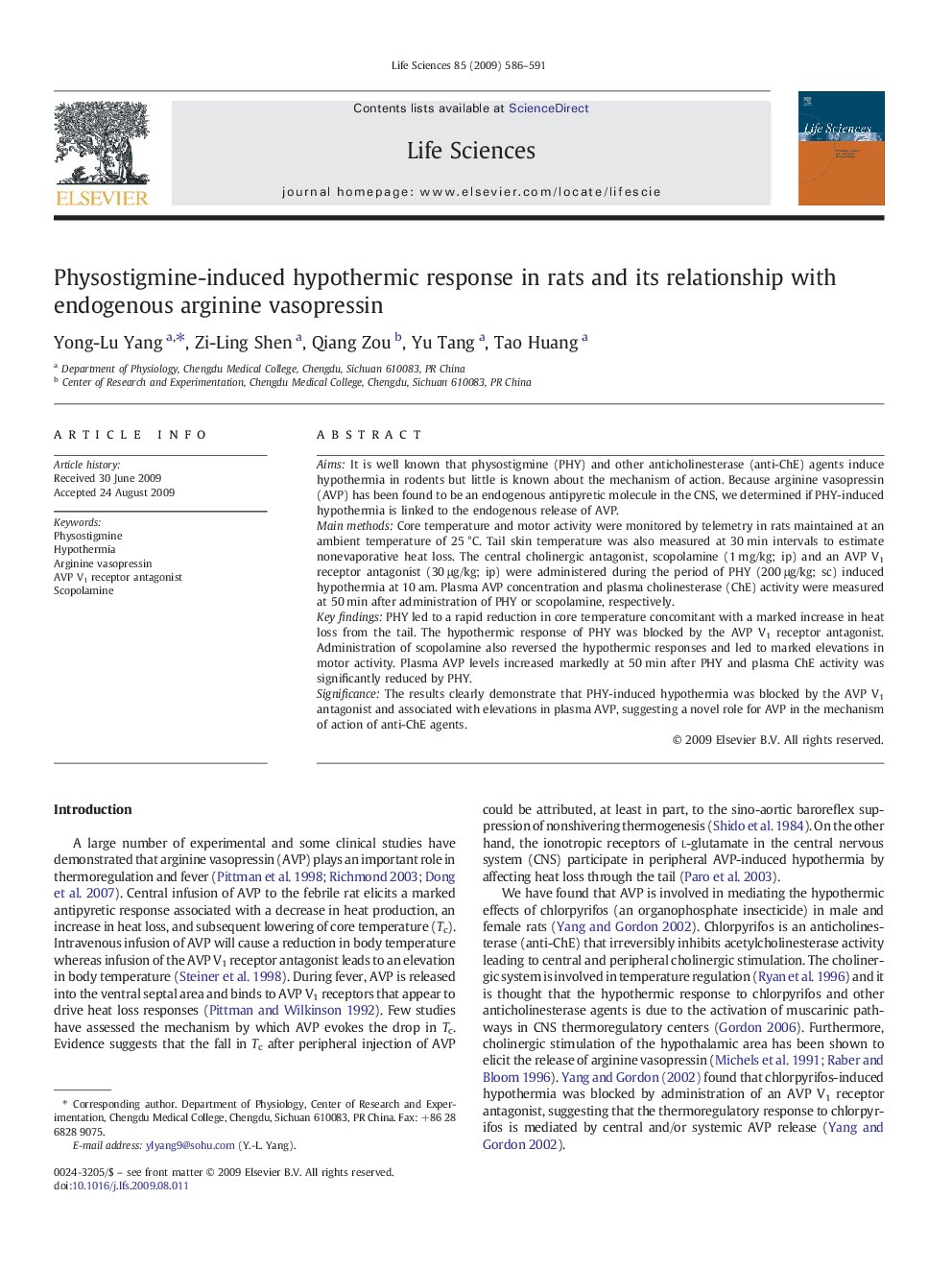| Article ID | Journal | Published Year | Pages | File Type |
|---|---|---|---|---|
| 2552602 | Life Sciences | 2009 | 6 Pages |
AimsIt is well known that physostigmine (PHY) and other anticholinesterase (anti-ChE) agents induce hypothermia in rodents but little is known about the mechanism of action. Because arginine vasopressin (AVP) has been found to be an endogenous antipyretic molecule in the CNS, we determined if PHY-induced hypothermia is linked to the endogenous release of AVP.Main methodsCore temperature and motor activity were monitored by telemetry in rats maintained at an ambient temperature of 25 °C. Tail skin temperature was also measured at 30 min intervals to estimate nonevaporative heat loss. The central cholinergic antagonist, scopolamine (1 mg/kg; ip) and an AVP V1 receptor antagonist (30 μg/kg; ip) were administered during the period of PHY (200 μg/kg; sc) induced hypothermia at 10 am. Plasma AVP concentration and plasma cholinesterase (ChE) activity were measured at 50 min after administration of PHY or scopolamine, respectively.Key findingsPHY led to a rapid reduction in core temperature concomitant with a marked increase in heat loss from the tail. The hypothermic response of PHY was blocked by the AVP V1 receptor antagonist. Administration of scopolamine also reversed the hypothermic responses and led to marked elevations in motor activity. Plasma AVP levels increased markedly at 50 min after PHY and plasma ChE activity was significantly reduced by PHY.SignificanceThe results clearly demonstrate that PHY-induced hypothermia was blocked by the AVP V1 antagonist and associated with elevations in plasma AVP, suggesting a novel role for AVP in the mechanism of action of anti-ChE agents.
